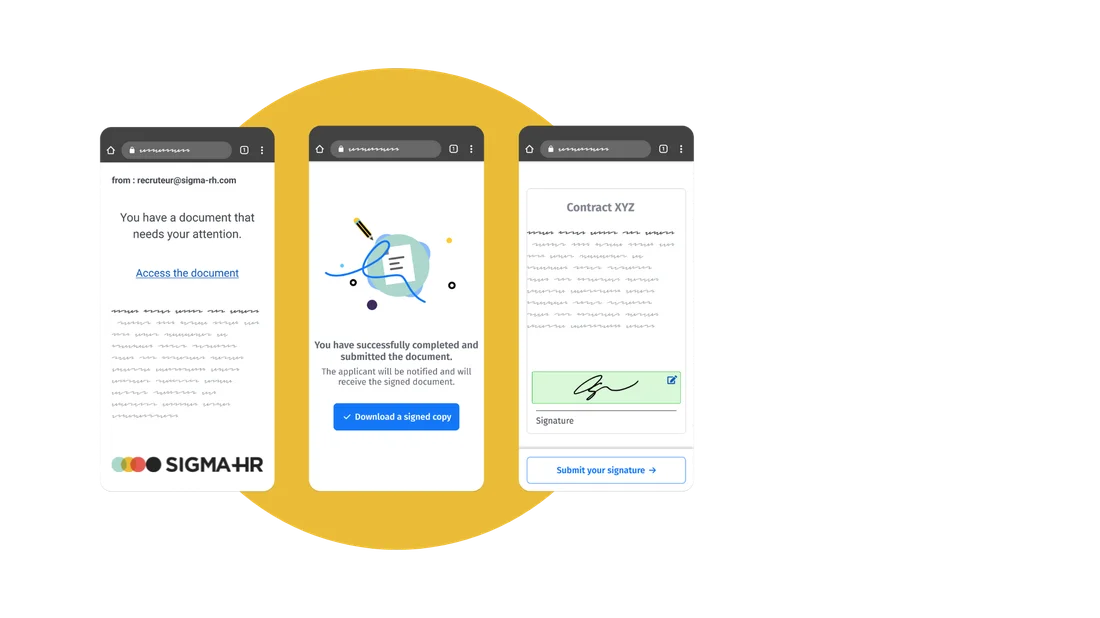Understanding Advanced Electronic Signature
SIGMA-HR’s electronic signature is considered “advanced”, which means it complies with the standards defined in the eIDAS Regulation. It provides a high level of security and is based on digital certificates issued by recognized certification authorities, which authenticate the identity of the signer.
To qualify as advanced, it must meet several requirements, such as:
- Being uniquely linked to the signer.
- Allowing the identification of the signer.
- Created using signature creation data that the signer can use under their exclusive control.
- Guaranteeing the integrity of the signed data.
Companies often use it to validate documents, contracts, or transactions that require a higher level of security.
Definition and Characteristics
Advanced electronic signature is a form of electronic signature that is uniquely linked to the signer and allows for their identification. It is created using means that the signer can keep under their exclusive control and is linked to the data it relates to in such a way that any subsequent modification of the data can be detected.
Among its specific characteristics, we note:
- A higher level of security compared to a simple electronic signature, thanks to the use of digital certificates issued by recognized certification authorities.
- The need to comply with four requirements according to the eIDAS Regulation: being uniquely linked to the signer, allowing the identification of the signer, being created using means that the signer can keep under their exclusive control, and being linked to the data it relates to in such a way that any subsequent modification of the data can be detected.
- Frequent use by companies to validate documents, contracts, or transactions requiring increased security.



